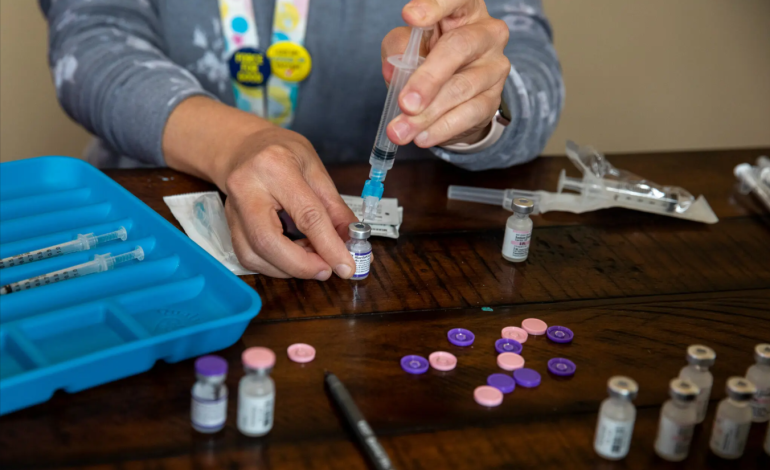A Centers for Disease Control and Prevention (CDC) advisory committee is set to revisit the use of thimerosal, a mercury-based preservative found in some flu vaccines, as longstanding concerns reemerge in a new political context, the New York Times reports.
The Advisory Committee on Immunization Practices (ACIP), which helps shape national vaccine guidelines, will discuss and vote on thimerosal’s use during its meeting this week. Although the preservative is no longer used in most routine vaccinations in the US, it remains present in some multi-dose flu vaccine vials.
Thimerosal has been at the center of vaccine safety debates for more than two decades. Critics have alleged, without scientific support, that it is linked to autism and other neurological disorders. These claims, often dismissed by mainstream health experts, are gaining renewed attention under Health Secretary Robert F. Kennedy, who has long advocated against the use of mercury in vaccines.
The upcoming CDC discussion will mark a departure from past practice. Instead of a CDC scientist leading the presentation on thimerosal, Lyn Redwood — a former leader of an organization critical of vaccines — will address the committee. Her presentation materials describe thimerosal as “neurotoxic” and harmful to pregnant women and children, a position that runs counter to the scientific consensus.
Used in vaccines since the 1930s, thimerosal helps prevent contamination in multi-dose vials. While it has been removed from nearly all routine childhood vaccines in the US since 2001, it remains in limited use for flu shots. The CDC reports that around 96% of flu vaccines administered last season were thimerosal-free.
Concerns over mercury exposure led public health agencies, including the CDC and the American Academy of Pediatrics, to recommend removing thimerosal from children’s vaccines as a precaution in 1999. The move was intended to ease public anxiety, despite a lack of conclusive evidence that the preservative posed a health risk at the levels used in vaccines.
Numerous studies conducted over the past two decades have consistently found no link between thimerosal and autism or other neurodevelopmental conditions. For instance, a major study in Denmark involving over 460,000 children found no difference in autism rates between those who received thimerosal-containing vaccines and those who did not.
Health experts also emphasize that the type of mercury in thimerosal — ethylmercury — is distinct from the more persistent methylmercury found in the environment. Ethylmercury is processed and eliminated by the body more quickly, reducing the likelihood of accumulation or toxicity.
“The amount in some flu vaccines is about the same as what you’d find in a small can of tuna,” said Dr. Paul Offit, a pediatric vaccine specialist at the Children’s Hospital of Philadelphia. “There’s no evidence that it causes harm at these levels.”
The renewed scrutiny reflects a broader shift in vaccine policy discussions under current leadership. Secretary Kennedy, a longtime critic of thimerosal, has written and spoken extensively in favor of removing all mercury-based compounds from vaccines.
A document briefly published on the CDC’s website this week outlined decades of safety data supporting thimerosal’s continued use, stating there was no evidence of harm. The document was later taken down without explanation.
The ACIP’s forthcoming decision could influence how flu vaccines are formulated and distributed, particularly with regard to multi-dose formats that are more cost-effective but require preservatives like thimerosal.










The latest news in your social feeds
Subscribe to our social media platforms to stay tuned